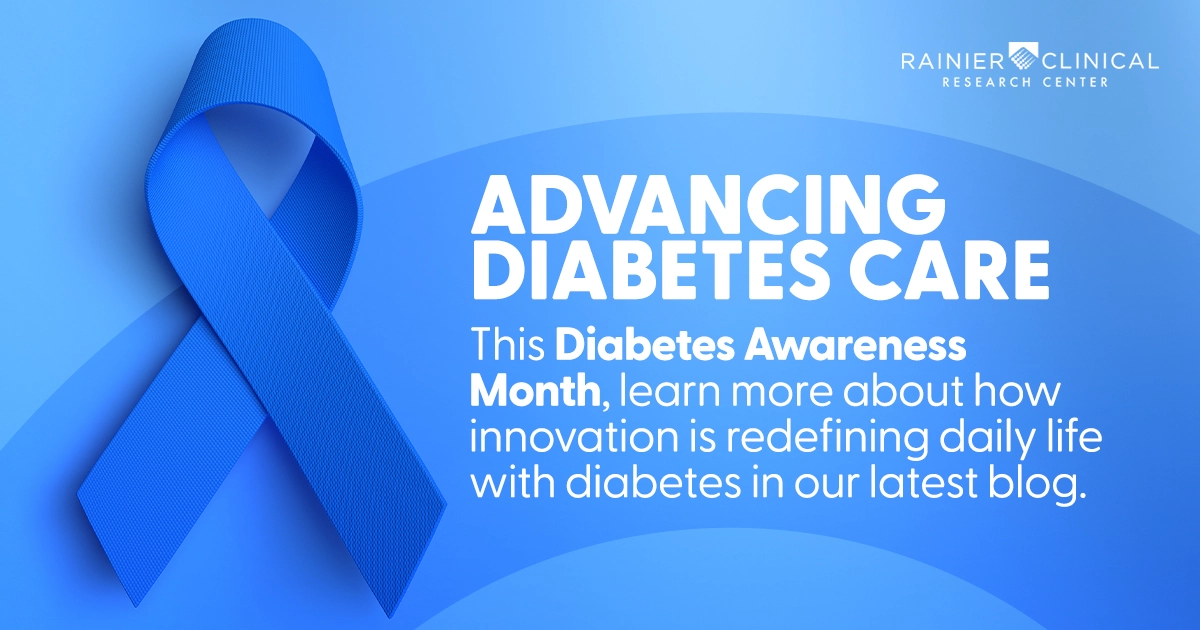

The Cardiovascular and Diabetes Connection
We all know diabetes is a common condition affecting millions, but did you know it can lead to heart complications? Our latest blog discussing the cardiovascular and diabetes connection is a great place to start if you want to learn more and help reduce your risk!
Diabetes and The Heart
Cardiovascular diseases (CVD) refers to numerous health conditions that affect the heart and circulatory system, including stroke, blocked arteries, and heart failure. It's an umbrella term that covers a variety of ailments, some of which are preventable through lifestyle changes. What many fail to realize is that those living with diabetes are often at a much higher risk of encountering cardiovascular issues. While diabetes is a manageable disease, one of its most concerning complications is the increased worry of heart problems. According to the Centers for Disease Control and Prevention, those with diabetes are two to four times more likely to be affected by heart disease or stroke than those without diabetes.
How Does Diabetes Affect Cardiovascular Health?
Diabetes can be extremely harmful to your heart. The effects of type 1 or type 2 diabetes on the cardiovascular system include high blood pressure, too much LDL (bad cholesterol), and high triglycerides, all of which can contribute to heart issues. For example, high blood pressure strains the walls of the arteries, making them more vulnerable to the buildup of fatty materials that narrow them and reduce efficient circulation. While too much LDL, otherwise known as ‘bad’ cholesterol, makes it difficult for blood to flow through arteries since it clings to their sides like glue. Lastly, high triglycerides increase fat particles in the bloodstream that is then forced through the circulatory system, creating additional strain on the already fragile artery walls.
However, good lifestyle habits such as regular exercise and a healthy diet are vital in preventing diabetes’ damaging effect on the cardiovascular system. Be sure to work closely with your healthcare provider to mitigate risks by creating a treatment plan to address any changes that occur after a diagnosis of diabetes.

CVD: Common Signs and Diagnosis
Since diabetes patients are especially prone to cardiovascular disease, they should be vigilant of common signs. Usual symptoms of CVD in those with diabetes include:
-Accelerated heart rate
-Chest discomfort
-Difficulty breathing or shortness of breath
-Dizziness
-Numbness or swelling of the arms or legs
-Pain in different areas of the body (chest is most common)
-Unexplained fatigue
Diagnosing cardiovascular disease typically begins by discussing the patient's medical history. This can include questions about family health, diet, physical activity, and any symptoms being experienced. A physical exam and lab tests are also important in identifying any abnormalities. An electrocardiogram(ECG) or echocardiogram may measure electrical activity in the heart or assess its functioning. Cardiac stress tests and other imaging procedures, such as CT scans or magnetic resonance imaging (MRI), can also provide valuable information about the heart's condition. Once a diagnosis is made, the treatment for cardiovascular disease will depend on the type of heart disorder that has been diagnosed. Unfortunately, many remain unaware that they have CVD until more severe symptoms manifest. Yet, with regular doctor visits, those at risk of heart disease can more effectively reduce unnecessary complications.

Resources:
https://diabetes.org/diabetes/cardiovascular-disease


